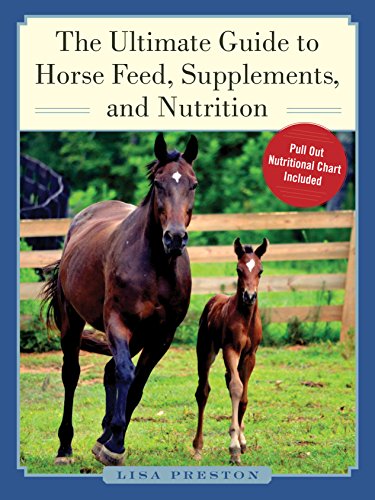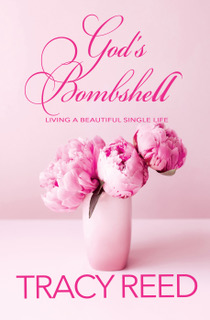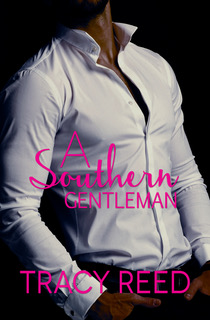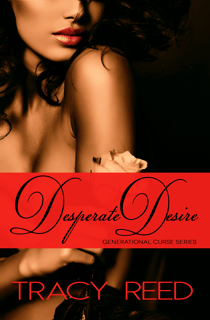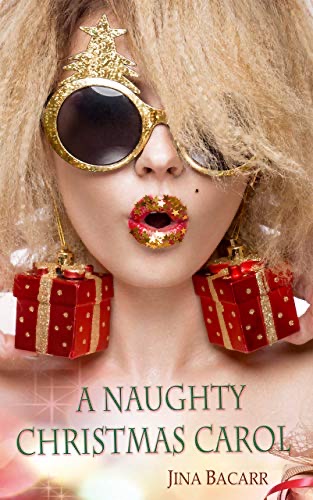SELF INFLICTED WOUNDS by Jenny Jensen
January 19, 2019 by Jenny Jensen in category On writing . . . by Jenny Jensen tagged as credibility, editing, Editors, self-publishing, typos
The Indie Revolution is the most exciting innovation since Google; it’s more refreshing than the demise of the mullet. It’s such a grand opportunity! It’s so… democratic. Anyone with the passion and discipline to write down the stories that live in their head can offer their work to the world. There are no subjective, judgmental, economic barriers blocking the way. Every avid reader can troll the newest book offerings looking for that next great discovery. When I find a fresh new voice with an exciting sense of drama, fascinating characters and a unique tale to spin it’s like winning the lottery (at least I imagine it is, having never won myself).
And we all know what they say about opportunity—it’s something to make the best of. That’s why I am so amazed how many Indie books contain errors of the sort that any good set of editorial eyes would have found and corrected. It’s a message to me, the reader, that I’m not important enough to make the book right. Or worse, the author thinks so little of me that I’ll accept any error, that I won’t notice or care.
How can I not care when DCI Stewart, ruggedly attractive in a wry funny way (this narrative already has me considering Book Two) has just gone through XXI chapters of intriguing madness to finally find the decisive evidence and as he lifts the shredded ribbon from the debris of the broken vase he cries, “Waa La!”. What!? Waa La? I’m out of the moment now, jerked rudely from the mounting tension. DCI Stewart is no longer clever or ingenious; he’s an idiot. Give the poor man a “Viola!”. I can’t bear to look at any more.
It’s a different kind of awful when the whip smart heroine finally descends the grand staircase to face her treacherous half siblings and the room falls silent, “the rustling tool of her elegant gown the only sound”. This instantly conjures hysterically unintentional images. Yikes, it’s toile. I want to scream. The story has lost all credibility. I can’t get my reading mojo back. Why didn’t this author care?
It’s one thing to accept a typo or two, even a few missing prepositions are forgivable (just remember all those reviews that say it would have been a 4 star except for the typos) but it’s a lot to ask your audience to overlook faulty word choice, a change of voice in mid-chapter, a glaring hole in the timeline, a nonsensical plot point or character traits that shifts mid stream.
Such errors are forgivable in any draft—that’s where the author gets the story down and who cares if a character proclaims it’s a “mute point”. Under the fresh, critical eye of an editor it will become a moot point. This is the stage where an objective eye sees what the writer has missed by staring so long at the trees. Maybe the story arc lags, maybe the narrative or characters are inconsistent, a good editor and the writer can fix it. Doesn’t the writer want it perfect?
Indie publishing is such a golden opportunity and writing a good book requires so much personal investment to get to a good draft it’s sad how many writers just blithely publish, warts and all. Take the extra step and work with an editor. Your book and your readers are worth it. We editors can to save you from shooting yourself in the foot.
4 0 Read moreVibrant & Vile Villains by Jenny Jensen
December 19, 2018 by Jenny Jensen in category On writing . . . by Jenny Jensen tagged as Good villians, Villains, writing
“All stories are about wolves. Anything else is sentimental drivel.”
Margret Atwood.
That’s a strong statement—lots of ways to interpret it. I love it because to me, it says that all stories should have a villain. And I agree. How can you have the good without the bad? Where would the tension live? If something has to be overcome, you need a villain to vanquish. And if the plot needs redemption the story needs a villain to redeem. (A Christmas Carol without Ebenezer’s reform? Unthinkable.)
The villain isn’t always a person. It can be an institution,or an illness, or Mother Nature. All those ‘larger issue’ villains work for some magnificent tales, but my favorites are the really awful, mustachet wirling, gloating, cackling, venal bad guys.
Good villains, the kind we love to hate, are never one dimensional tools included just to make the protagonist work hard to overcome something. A well-drawn villain is a fully fleshed out character with attributes, history, and purpose strong enough to motivate and justify the hero’s tribulations. We’re so fully shown who and what Mordred is that his relentles spursuit of King Arthur is entirely credible—and because Arthur is beautifully depicted
—it’s personal to the reader. Now that’s an enthralling story.
Whether redeemable or irredeemable the villain is often the best part of a story. No one can think of Oliver twist without Fagin popping upwith his “…face obscured by a quantity of red hair” as he beats and betrays the children he has enslaved. We don’t forget Oliver, but we don’t dream about him either (or is that a nightmare?). When a character is that memorable it’s because something, if not everything about him, is relatable.
To develop a really badass villain, one whose actions the reader can understand and accept, the character needs some face time. Not as much as the hero certainly, but enough to lay the background for future actions, enough to make him real and fathomable. There is nothing more boring than a serial killer who is seen only through the gruesome details of the killing. If he is complex, as real people are, if he is exceptional in some way that supports an evil bent, then all the more disconcerting—like the jolly neighborhood butcher whose cutlets may not all be beef.
Some of the best villains have sterling personality traits. Perhaps they’re charming, or witty, well mannered and gracious. Traits contradictory to the villain’s actions make those bad actions all the more frightening. Showing the bad guy through contradictory traits is a powerful tool but if you work at it you can spin evil traits to appear benign—until they’re not. That’s chilling.
A well-developed villain written as an authentic character will give any story the spice it needs. Who will your next villain be?
1 0 Read more
31+ Flavors of Story
November 19, 2018 by Jenny Jensen in category On writing . . . by Jenny Jensen tagged as categories, flavors, genre Genre. Ugh. The subject gets more coverage than alien abduction, and it probably always will. The Internet is full of advice urging writers to pick a genre and then write to it; this before the opening sentence gets any thought. Writing to a genre gives the author a clear marketing path. There are warnings against cross genre work because it is hard to market, and then there are the arguments about what exactly, qualifies a story as belonging to a particular genre. Makes the head spin so I surprise myself, but I want to advocate a new genre.
Genre. Ugh. The subject gets more coverage than alien abduction, and it probably always will. The Internet is full of advice urging writers to pick a genre and then write to it; this before the opening sentence gets any thought. Writing to a genre gives the author a clear marketing path. There are warnings against cross genre work because it is hard to market, and then there are the arguments about what exactly, qualifies a story as belonging to a particular genre. Makes the head spin so I surprise myself, but I want to advocate a new genre.
I appreciate that genre categories help readers find a book – readers know what kind of story they like. I use those categories when I’m looking for a fresh read. It’s the best tool for digital browsing. Problem is, the categories are often restrictive. Amazon has denied several of my clients publishing their work in the genre category they’ve chosen. And they don’t explain what factors the decision was based on. Does that mean if your Regency era tale of love involves Aunt Middie, the humble poor relation whose secretive potions are powerful and move the plot along, you have a Romance – or a fantasy? You could publish in both categories but it would still be unseen by readers who didn’t check both those boxes.
Can a gripping good story feature a sexy vampire who steals the crown jewels, thwarts a terrorist plot, redeems the fallen countess as he exposes government corruption and solves the murder, all while meeting and winning his one true love? Of course it can. To me, the best books always have possibilities beyond what the author may have intended. I love genre-blending books, the mixed bag plots that weave in a load of improbable possibles and make it all work because the world building and plotting are strong enough for the necessary suspension of belief.
It’s a given that genre categories are necessary. I accept it and am glad that the categories themselves have expanded to include more contemporary fictional worlds such as Dystopia and Magical Realism. Still, that doesn’t cover those books that defy categorization by mixing literary elements. A.F. Scudiere, whose Nightshade series involves werewolves, the FBI, forensics, action and adventure and a developing love story is Amazon-ranked in thriller, suspense, fantasy, occult and mystery. That’s a pretty wide reach and each category fits in some way but I have to wonder how many readers browse all of them.
Ashley C. Gillis’s Detach & Target is a military thriller and a romance and neither element trips the other up. She is on Amazon under romance, war & military, and war. I wonder how many readers missed this exciting and well written book because the genre categories don’t exactly fit. I think a lot of readers may be missing a really gritty and realistic story of a special Marine unit’s action and interaction. If we had a genre category that spread a wider net, including any mix of literary devises in a cohesive, well written whole, it would be a great place to browse when a reader is hungry to taste something outside the conventional.
I propose calling this genre Salmagundi. It’s not just a salad anymore, it’s a new literary flavor.
1 0 Read more
How To Develop the Right Character? Shop ’till you drop.
October 18, 2018 by Jenny Jensen in category On writing . . . by Jenny Jensen Just finished a manuscript with a grand premise, a smashing hero, the story arc of a roller coaster and a cast of fabulous secondary players. The client feels something is off, and she’s right. It’s the main character; she’s cardboard. She’s flat. She’s duller than dishwater.
Just finished a manuscript with a grand premise, a smashing hero, the story arc of a roller coaster and a cast of fabulous secondary players. The client feels something is off, and she’s right. It’s the main character; she’s cardboard. She’s flat. She’s duller than dishwater.
We discuss the issue and agree the MC needs more love, more exploration. This character needs a spirit and the personality to flawlessly meet the needs of the plot points. The reader needs to effortlessly believe this woman, who lives free of the restraints that bind most of us, is real. She wears Louboutin, Gucci jeans, Vera Wang blouses, all bought retail. She is spa’ed and buffed to perfection. This girl power shops. She has always been stinking rich, until she’s not.
The author knows her challenge is to paint this character with colors the reader can relate to. Despite her golden life she must be so likeable we can be disappointed in her, fear and root for her and cheer her ultimate success. So it’s back to the keyboard. I know the author will nail it. She just needs time and a fresh perspective.
It leaves me thinking about the process of character development. A character can spring to life full blown, like Venus, or grow from a chance meeting with someone unique. It’s not uncommon for a writer to spend years with a hazy character floating in their mind until one day it solidifies, complete with story. Or, as in this case, you can build the character to fit the action. I know there isn’t a formula for inspiration, but I get an idea of how to help find an uber rich girl’s character.
My friend Judy and I each have $50,000 and 4 hours to spend it. The only rules are no car or real estate – too easy – and you really have to want what you purchase. It’s pretend money, of course, so we make it a competition to spice things up. First item in my column – a $2,000 Rebecca Taylor cocktail dress. I’m gonna be good at this! Next is a sleek deer cast in bronze – $5800. Ca ching. I’m hot now.
When time is up, I’ve failed. Judy wins by $1800, but that’s only because she saw the blue Luchese cowboy boots first. Neither of us could spend our entire $50,000 but I learned a lot. The experience gave me a feel for the thoughts, mannerisms and motivation of a fully funded shopaholic. More importantly, I can see how this character would change in the face of the adversity coming her way. It’s that character development that will give the story heart.
I share my day of conspicuous consumption with the author and show how it’s helped me view this problem of character. She’s jazzed to have another way of looking at it. I’m jazzed because I’ve done my job and had so much fun doing it. I’m going to stay patient – writers need the time they need – but I can hardly wait for the second draft to see how this character emerges.
Jenny
2 0 Read moreREDUNDANT
September 19, 2018 by Jenny Jensen in category On writing . . . by Jenny Jensen tagged as editing, redundant, writing
REDUNDANT: adj. Exceeding what is necessary or natural; superfluous. Needlessly wordy or repetitive in expression. American Heritage Dictionary
In my editing business I come across redundancy a lot. That and it’s kissin’ cousin overwriting. Both are common, and excusable — especially in the draft stage. We all do it. A draft is the place to get every thought out and on the page. It isn’t surprising when your draft reads: “Conversation with Jason was so dull and boring he was putting Claire to sleep”. That’s a simple repetition of meaning within a single sentence and it’s easy to spot and fix. If Jason is so dull he’s putting Claire to sleep then clearly the guy is boring. Go for punchy: “Claire found conversation with Jason soporific.” If you’re looking for it you’ll spot the redundant meanings and as awareness grows even drafts lose the redundancies.
Redundant means needlessly wordy as well as repetitive and that’s a writing snafu that can suck the life right out of good story.
Despite her past history Shelia remained woefully sad about the unintentional mistake that she’d made a long time ago when she was just a silly, young adolescent and not the wise and knowing 17 year old she was now. She wished she could just postpone the principal’s request until later and deal with the whole ugly business in the future when she was older and prettier (as if that was even possible). Squaring her shoulders she pulled herself up, raised her chin, took an enriching deep breath and marched into Mr. Grisslywald’s office.
Wow, there it is: redundant kissing right up to over writing. They often go hand in hand like mismatched mittens. You know a book suffers from overwriting when you find yourself thinking “Get on with it…puhleese” in the middle of a chapter. But it’s easy to spot when self-editing. If a passage seems overly long take out all the words that don’t affect meaning and then question the necessity of what’s left. Does it move the story forward? Add anything to plot or character understanding? Strengthen foreshadowing or reinforce atmosphere? If not, cast the evil over writing out. Keep your narrative flowing with the essentials.
Having relayed all those warnings about redundancy, it does have a bright side. Repetition is a well-used literary technique. Used correctly and for the right reasons it’s very effective. Trigger words (or phrases) for example. Trigger words are words chosen to elicit an emotional response and can be very powerful when repeated throughout a story. A bit like metaphor, the meaning of a trigger word needs to be established early in the narrative i.e., what emotional response the author wants it to evoke. Then when that trigger word appears again and again in the appropriate place, the reader knows and feels that emotional response. It can be a very effective way to convey character motivation, or reinforce a story’s entire premise.
A story of mine opens with the narrator remembering her grandmother. Granny Mae Rae spit with disdain when talking of those women she called Passion Hearted. These are the women who can’t face their lot, accept the man they’re supposed marry, bear without fuss the children they’re fated to have and carry on with the chores of life without complaint. Instead they search for meaning, for some strange notion of fancy love, chasing after some fey idea of purpose. Granny Mae Rae knew all about purpose and it wasn’t Passion Hearted.
That term is explained up front and repeated throughout the narrative as the heroine comes to learn that she is one of Granny’s Passion Hearted. Her rags to riches character, who seeks a soul mate, is better understood and her motivations reinforced by repetition of that trigger. OK, mine may not be great literature but the technique works.
Repetition can be a really effective device if properly used, but as a natural consequence of writing it’s often redundant. Stay mindful of dull and boring, aware of unnecessary verbiage and repetitive descriptions and actions that don’t add anything. A clean, succinct narrative allows us readers to happily just get lost in the tale.
Jenny
2 0 Read moreAffiliate Links
A Slice of Orange is an affiliate with some of the booksellers listed on this website, including Barnes & Nobel, Books A Million, iBooks, Kobo, and Smashwords. This means A Slice of Orange may earn a small advertising fee from sales made through the links used on this website. There are reminders of these affiliate links on the pages for individual books.
Search A Slice of Orange
Find a Column
Archives
Featured Books
THE ULTIMATE GUIDE TO HORSE FEED, SUPPLEMENTS, AND NUTRITION
A comprehensive guide of the dos and don'ts of equine nutrition--featuring a full-color pull-out chart.
More info →GOD’S BOMBSHELL: LIVING A BEAUTIFUL SINGLE LIFE
If you're looking for tips on how to find a nice Christian husband, don't read this book.
More info →A SOUTHERN GENTLEMAN
"A woman walks into a crowded Manhattan bar and meets a nice southern gentleman." That sounds like the beginning of a bad joke or the beginning of an intriguing love story.
More info →DESPERATE DESIRE
How desperate do you have to be, to break your marriage vows?
More info →A NAUGHTY CHRISTMAS CAROL
What if Scrooge was a tall, dark, and oh so sexy Wall Street billionaire?
More info →Newsletter
Contributing Authors
Search A Slice of Orange
Find a Column
Archives
Authors in the Bookstore
- A. E. Decker
- A. J. Scudiere
- A.J. Sidransky
- Abby Collette
- Alanna Lucus
- Albert Marrin
- Alice Duncan
- Alina K. Field
- Alison Green Myers
- Andi Lawrencovna
- Andrew C Raiford
- Angela Pryce
- Aviva Vaughn
- Barbara Ankrum
- Bethlehem Writers Group, LLC
- Carol L. Wright
- Celeste Barclay
- Christina Alexandra
- Christopher D. Ochs
- Claire Davon
- Claire Naden
- Courtnee Turner Hoyle
- Courtney Annicchiarico
- D. Lieber
- Daniel V. Meier Jr.
- Debra Dixon
- Debra H. Goldstein
- Debra Holland
- Dee Ann Palmer
- Denise M. Colby
- Diane Benefiel
- Diane Sismour
- Dianna Sinovic
- DT Krippene
- E.B. Dawson
- Emilie Dallaire
- Emily Brightwell
- Emily PW Murphy
- Fae Rowen
- Faith L. Justice
- Frances Amati
- Geralyn Corcillo
- Glynnis Campbell
- Greg Jolley
- H. O. Charles
- Jaclyn Roché
- Jacqueline Diamond
- Janet Lynn and Will Zeilinger
- Jaya Mehta
- Jeff Baird
- Jenna Barwin
- Jenne Kern
- Jennifer D. Bokal
- Jennifer Lyon
- Jerome W. McFadden
- Jill Piscitello
- Jina Bacarr
- Jo A. Hiestand
- Jodi Bogert
- Jolina Petersheim
- Jonathan Maberry
- Joy Allyson
- Judy Duarte
- Justin Murphy
- Justine Davis
- Kat Martin
- Kidd Wadsworth
- Kitty Bucholtz
- Kristy Tate
- Larry Deibert
- Larry Hamilton
- Laura Drake
- Laurie Stevens
- Leslie Knowles
- Li-Ying Lundquist
- Linda Carroll-Bradd
- Linda Lappin
- Linda McLaughlin
- Linda O. Johnston
- Lisa Preston
- Lolo Paige
- Loran Holt
- Lynette M. Burrows
- Lyssa Kay Adams
- Madeline Ash
- Margarita Engle
- Marguerite Quantaine
- Marianne H. Donley
- Mary Castillo
- Maureen Klovers
- Megan Haskell
- Melanie Waterbury
- Melisa Rivero
- Melissa Chambers
- Melodie Winawer
- Meriam Wilhelm
- Mikel J. Wilson
- Mindy Neff
- Monica McCabe
- Nancy Brashear
- Neetu Malik
- Nikki Prince
- Once Upon Anthologies
- Paula Gail Benson
- Penny Reid
- Peter Barbour
- Priscilla Oliveras
- R. H. Kohno
- Rachel Hailey
- Ralph Hieb
- Ramcy Diek
- Ransom Stephens
- Rebecca Forster
- Renae Wrich
- Roxy Matthews
- Ryder Hunte Clancy
- Sally Paradysz
- Sheila Colón-Bagley
- Simone de Muñoz
- Sophie Barnes
- Susan Kaye Quinn
- Susan Lynn Meyer
- Susan Squires
- T. D. Fox
- Tara C. Allred
- Tara Lain
- Tari Lynn Jewett
- Terri Osburn
- Tracy Reed
- Vera Jane Cook
- Vicki Crum
- Writing Something Romantic
Affiliate Links
A Slice of Orange is an affiliate with some of the booksellers listed on this website, including Barnes & Nobel, Books A Million, iBooks, Kobo, and Smashwords. This means A Slice of Orange may earn a small advertising fee from sales made through the links used on this website. There are reminders of these affiliate links on the pages for individual books.

